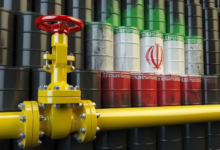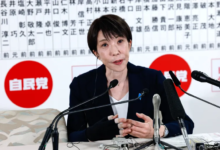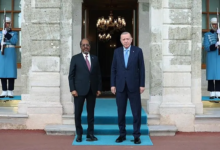Trump Administration Explores Strategies to Promote Global Dollar Adoption Amid Rising Chinese Influence

Officials in the administration of U.S. President Donald Trump are actively discussing ways to encourage foreign countries to adopt the U.S. dollar as a primary currency, as part of a broader effort to counter China’s attempts to weaken the dollar’s dominance in global markets.
During the summer, staff from several government departments—including the Treasury and the White House—met with Steve Hanke, a Johns Hopkins University professor and leading expert on dollarization, to examine how the administration could advance this policy direction.
According to the Financial Times, Hanke said, “They are taking this policy seriously, but it is still in progress. No final decisions have been made yet.”
These discussions come as the United States steps in to help stabilize Argentina’s turbulent markets. Some policymakers and economists argue that Argentina is a prime candidate for dollarization due to repeated collapses in confidence in the peso, although both U.S. and Argentine officials publicly deny exploring such an option, the paper reported.
Dollarization refers to the use of the U.S. dollar in domestic transactions either alongside a local currency or as a complete replacement for it.
Concerns Over China’s Push to Reduce Dollar Usage
Administration officials have expressed increasing concern about Beijing’s efforts to reduce the use of the U.S. dollar in cross-border transactions, especially in emerging markets.
Hanke noted that a “political figure” connected to the White House voiced these concerns during a meeting held in late August. He added that this figure “made clear what I already understood: there is a high-level group within the administration focused on strengthening the dollar’s international role.”
According to Hanke, this interest aligns with the administration’s efforts to expand the use of dollar-backed stablecoins.
He said influential figures asked for a thorough review of all relevant issues—“and that is where you come in.”
A White House spokesperson confirmed that officials had indeed met with Hanke, but emphasized that no formal decision has been made about encouraging dollarization.
Spokesperson Kush Desai stated: “President Trump has repeatedly reaffirmed his commitment to maintaining the strength and authority of the U.S. dollar. As with many matters of national importance, the administration routinely seeks insights from external experts. However, these discussions should not be viewed as a reflection of official policy positions or decision-making.”
Countries Seen as Potential Candidates for Dollarization
Hanke told officials that he views Argentina as one of the strongest candidates for adopting the dollar, along with Lebanon, Pakistan, Ghana, Turkey, Egypt, Venezuela, and Zimbabwe.
The discussions began in August, shortly before the U.S. Treasury extended a $20 billion rescue package to Argentina.
Hanke held two personal meetings with senior officials in mid- and late August, attended by members of the President’s Council of Economic Advisers, the National Economic Council, and the National Security Council. A second meeting also included a Treasury official and a senior political figure from the White House.
Despite his regular contact with administration officials, Hanke said Argentina’s current crisis has not sparked intensified debate. Dollarization has long been proposed as a solution to Argentina’s recurring currency crises and was a key pledge in Javier Milei’s 2023 presidential campaign.
Earlier this month, Argentine Economy Minister Luis Caputo dismissed dollarization as a short-term option, citing insufficient dollar reserves, though he did not rule it out entirely.
Other prominent figures have also argued in favor of dollarization. Jay Newman—a key player in hedge fund Elliott Management’s long legal battle with Argentina over its defaulted debt—said: “This is what needs to happen if we want to break this vicious cycle. Otherwise, every time dollars are injected into the economy, the oligarchy and anyone with offshore accounts simply pulls them back out.”
Smaller Latin American economies such as Ecuador and El Salvador already use the U.S. dollar. However, the International Monetary Fund warns that dollarization could harm Argentina’s long-term growth by forcing the country to adopt U.S. Federal Reserve monetary policies.








